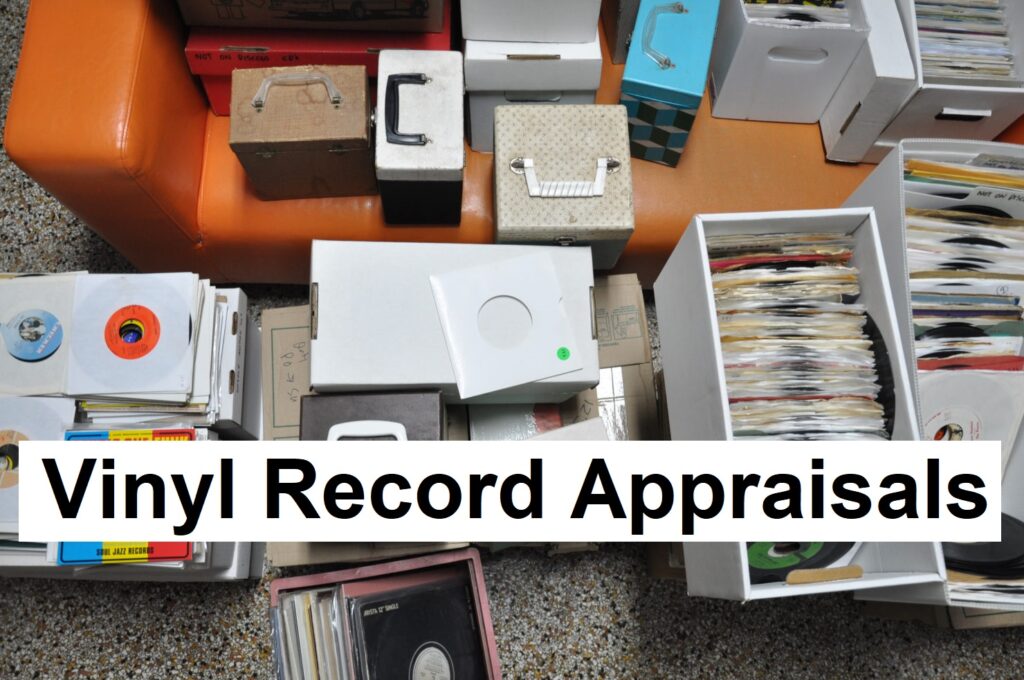Determining the true value of your vinyl records requires more than just a casual assessment. Whether you’ve inherited a collection or built one over decades, understanding how to get accurate vinyl record appraisals is crucial for collectors, sellers, and enthusiasts alike. This comprehensive guide will walk you through everything you need to know about valuing your precious vinyl collection.
Understanding Vinyl Record Appraisals
The process of vinyl record appraisals involves careful evaluation of multiple factors that contribute to a record’s worth. Professional appraisers examine not just the physical condition of the vinyl, but also consider historical significance, pressing details, and current market trends. This systematic approach ensures that collectors and sellers receive accurate valuations that reflect both the intrinsic and market value of their records.
Modern vinyl record appraisals have evolved significantly with the rise of digital platforms and databases. Today’s appraisers utilize sophisticated tools and extensive online resources to cross-reference prices, verify authenticity, and determine rarity. This combination of traditional expertise and modern technology provides more precise and reliable valuations than ever before.
What Are Vinyl Record Appraisals?
Vinyl record appraisals are professional evaluations that determine the monetary value of vinyl records based on their condition, rarity, and market demand. These assessments examine multiple factors including:
- Record condition and sound quality
- Original packaging and inserts
- Pressing details and matrix numbers
- Historical significance
- Current market trends
- Authentication of rare editions
A professional vinyl record appraisal typically involves a detailed inspection of both the vinyl and its accompanying materials, resulting in a formal valuation that collectors and sellers can use for insurance, sales, or collection management purposes. The process combines expert knowledge with current market analysis to provide accurate estimates of a record’s worth in today’s market.
Factors Affecting Vinyl Record Value
The value of a vinyl record is influenced by several key elements that professional appraisers carefully consider. First and foremost is the record’s condition, which encompasses both the vinyl itself and accompanying materials like sleeves, inserts, and artwork. Mint condition records with original packaging can command significantly higher prices than those showing wear or missing components.
Rarity plays another crucial role in determining value during vinyl record appraisals. Limited editions, first pressings, and records with unique features like colored vinyl or special artwork are typically worth more. Additionally, the historical significance of the artist, album, or pressing plant can dramatically impact value, as can current market demand and collector interest in specific genres or eras.
Professional Appraisal Methods
Professional appraisers employ standardized grading systems and evaluation techniques to ensure consistent and accurate assessments. The Goldmine Grading System, widely recognized in the industry, provides detailed criteria for rating vinyl conditions from Mint to Poor. Appraisers also examine matrix numbers, label variations, and pressing characteristics to authenticate and date records accurately.
Modern appraisal methods incorporate digital tools and databases like Discogs and Popsike to track market trends and verify recent sales data. Professional vinyl record appraisals often include detailed documentation of the record’s condition, pressing information, and unique characteristics. This comprehensive approach helps establish credible valuations that stand up to scrutiny in both private sales and insurance contexts.
The Role of Market Research
Understanding current market conditions is essential for accurate vinyl record appraisals. Appraisers actively monitor auction results, online marketplaces, and dealer networks to stay informed about pricing trends and collector preferences. This ongoing research helps identify emerging patterns in collector behavior and market valuations.
The vinyl market’s dynamic nature means that values can fluctuate based on various factors, including artist popularity, media attention, and broader economic conditions. Professional appraisers consider these market dynamics when providing valuations, often offering both current market value and long-term investment potential assessments. This comprehensive market analysis ensures that collectors receive the most accurate and useful information for making informed decisions about their collections.
DIY Vinyl Record Appraisals: Tips and Techniques
For collectors looking to conduct preliminary vinyl record appraisals at home, several key techniques can help establish a baseline value. Start by examining the record’s physical condition under bright, direct lighting, looking for scratches, warping, or other damage that might affect playback quality. Pay special attention to the run-out groove area, where matrix numbers and pressing information can help identify valuable first pressings or rare variants.
Creating a detailed inventory system is crucial for home vinyl record appraisals. Document each album’s condition, pressing details, and unique characteristics using standardized grading terminology. Utilize online resources like Discogs and vinyl collecting forums to research similar copies and their recent sale prices. Remember to consider factors like original inner sleeves, gatefold conditions, and any promotional materials that might enhance value.
Online Resources for Vinyl Record Appraisals
The digital age has revolutionized how vinyl record appraisals are conducted, with numerous online platforms offering valuable resources. Discogs remains the premier database for record collectors, providing detailed information about releases, pressing variations, and current market values. Other platforms like Popsike and CollectorsFrenzy track auction results, offering insights into how rare records perform in competitive bidding situations.
Social media communities and specialized forums have become invaluable resources for vinyl record appraisals. These platforms allow collectors to share knowledge, discuss market trends, and seek expert opinions on unusual or rare items. Online marketplaces like eBay and specialized vinyl shops also provide real-time data on current market values, though it’s important to consider that listed prices may differ from actual sale prices.
Common Challenges in Vinyl Record Appraisals
One of the most significant challenges in vinyl record appraisals is accurately assessing condition across different eras and pressing plants. Vinyl quality can vary significantly between pressings, and what constitutes “excellent” condition for a 1950s record might differ from modern standards. Authentication poses another major challenge, particularly with valuable recordings that may have been counterfeited or bootlegged.
Market volatility and regional price variations can also complicate vinyl record appraisals. Values can fluctuate dramatically based on local collector interest, international demand, and cultural trends. Additionally, the subjective nature of grading systems means that different appraisers might assign slightly different values to the same record. Understanding these challenges helps collectors and appraisers maintain realistic expectations and seek second opinions when necessary.
Future Trends in Vinyl Record Appraisals
The future of vinyl record appraisals is evolving with technological advancements and changing market dynamics. Digital authentication tools and blockchain technology are beginning to play a role in verifying provenance and tracking ownership history. Mobile apps specifically designed for vinyl record appraisals are emerging, making it easier for collectors to access professional-grade evaluation tools and market data.
The vinyl revival continues to influence how appraisals are conducted and valued. Modern limited editions and special releases are creating new categories for vinyl record appraisals, while vintage recordings maintain their appeal among serious collectors. Environmental factors, such as proper storage and preservation techniques, are becoming increasingly important in determining long-term value. As the market continues to evolve, professional appraisers must stay informed about these trends to provide accurate valuations that reflect both current market conditions and future potential.


